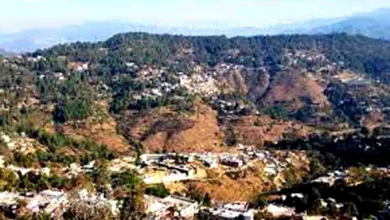How to really get more from less

THE OTHER SIDE
During the inauguration of the Dehradun integrated command and control centre, a senior bureaucrat from New Delhi recalled that Prime Minister Narendra Modi had encapsulated the smart city concept in a single sentence. The PM had said that the smart city concept is basically about how to get more from less. One found the description impressive even while wondering why should one spend so much just to get more from less. However, it is a fact that one does have to spend money even to be frugal while ensuring convenience and safety for the masses in a city. What was and still seems to be missing is the measures to effectively address the root cause of the problems to address which major initiatives are undertaken.
Speaking in the same event, the chief minister Trivendra Singh Rawat recalled that in the year 2000 about 4.5 lakh vehicles were registered in the State of Uttarakhand where now the total number of registered vehicles is about 30 lakh. The obvious and evident result is frequent traffic congestion even on roads which had sparse traffic in the past. So, will setting up hundreds of CCTV cameras to penalise traffic rule violators and ensure swift response in case of traffic jams resolve the problem?
Consider another major repercussion of rising urbanisation- alarming increase in garbage generation and pollution. The Swachchh Bharat mission is addressing the issue of garbage and sanitation. Prime Minister Narendra Modi did make garbage and its proper disposal an issue known to all while even attempting to elicit the focus of citizens on their own role in addressing the issue. Even in cases when he and some other ministers were accused of cosmetic actions when cleaning sites, they did make some difference in the attitude towards cleaning and sanitation workers. However, in both the cases- traffic and garbage, and most other issues faced in society, the most important factor which is not being addressed effectively is human behaviour. Even if the authorities turn Dehradun into a surveillance nightmare, people will still find ways to litter and cause traffic issues if their attitude and behaviour does not change. We have witnessed especially in the past year that even habitually complacent and irresponsible people can make changes in their behaviour if the motivation is strong enough. In the case of Covid-19 pandemic, the motivation for people was to save themselves from a new and confusing virus which could kill. We need to understand that it is not just the Covid virus that can kill or severely affect our lives. One can say this for many aspects but to keep it simple, take the example of traffic and garbage/pollution. Both are actually very alarming situations especially in Uttarakhand. Deaths, injuries, financial and other losses from road accidents are common. The failure to effectively address garbage and pollution also has serious health and environmental consequences. Do we need to be scared by something new and uncertain like Covid to come to our senses? The solution to these and most other problems is to first bring about positive changes in the attitude and behaviour of the people. People with civic sense who also use common sense while respecting rules meant for their own welfare will rarely cause traffic jams, accidents or act like garbage generation machines. The facilities being developed by the government will be used effectively for the intended purpose only if the citizens act responsibly and use these as intended. While the authorities focus more on technology, transforming appearances and expenditures, one can only hope that they start working effectively towards really getting more from less by bringing about the much needed change in attitude and behaviour of the citizens. The change will have to start with the establishment itself.
Saturday, 30 January 2021 | Paritosh Kimothi | Dehradun






